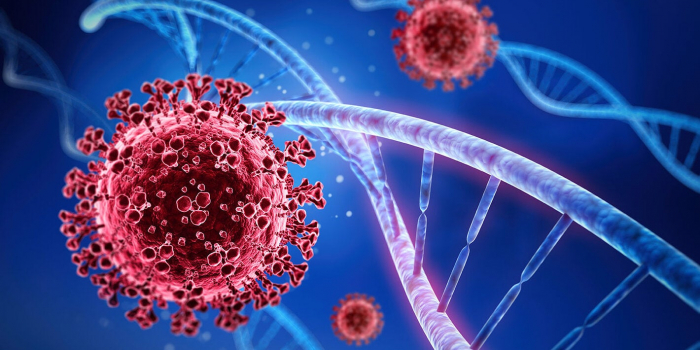Abnormalities have been identified in the lungs of long Covid patients that could offer a potential explanation for why some people experience breathlessness long after their initial infection.
The findings, from a pilot study involving 36 patients, raise the possibility that Covid may cause microscopic damage to the lungs that is not detected using routine tests.
Breathlessness is a symptom in the majority of long Covid patients, but it has been unclear whether this is linked to other factors such as changes in breathing patterns, tiredness, or something more fundamental.
According to Dr Emily Fraser, a consultant at Oxford university hospitals and a co-author of the study, the latest findings are the first evidence that underlying lung health could be impaired.
“It is the first study to demonstrate lung abnormalities in [people with long Covid] who are breathless and where other investigations are unremarkable,” said Fraser. “It does suggest the virus is causing some kind of persistent abnormality within the microstructure of the lungs or in the pulmonary vasculature.”
More work would be required to clarify the clinical significance of the findings, she added, including how the apparent abnormalities relate to breathlessness.
Claire Steves, a clinical senior lecturer at King’s College London who was not involved in the work, said the findings would be of significant interest to anyone living with long-term breathlessness after Covid.
“They suggest that the efficiency of the lung in doing what it is meant to do – exchange carbon dioxide and oxygen – may be compromised, even though the structure of the lung appears normal,” she said.
“However, we really need to await the completion of the study to know whether these early findings are robust, and if so, how much they explain, and what the ramifications are in terms of potential treatments.”
Fraser and colleagues are the latest to highlight physiological differences seen in people with long Covid, with research published this week pointing to an “antibody signature” that could help identify those most at risk.
The latest study, which is aiming to recruit 400 participants, is using a specialised MRI imaging technique in which patients breathe in xenon gas while lying in a scanner. The gas can be traced as it moves from the lungs into the bloodstream, giving a reading of how the lungs are functioning. This contrasts with CT scans, which show just the structure of the lungs.
The pilot compared three groups: patients diagnosed with long Covid who have normal CT scans, people who had been hospitalised with Covid more than three months previously and were not experiencing long Covid, and a healthy control group.
The initial results, published on the bioRxiv pre-print server, show there is “significantly impaired gas transfer” from the lungs to the bloodstream in these long Covid patients, even when other tests are normal. Similar abnormalities have been detected in Covid patients who had been hospitalised with more severe disease.
“These patients have never been in hospital and did not have an acute severe illness when they had their Covid-19 infection,” said Prof Fergus Gleeson, a radiologist at Oxford university hospitals NHS foundation trust and the study’s chief investigator. “Some of them have been experiencing their symptoms for a year after contracting Covid-19.”
Gleeson said the team were now hoping to look at what proportion of patients with long Covid have abnormal scans, and determine the significance of the abnormality and whether it improves over time.
Fraser said the findings did not undermine the relevance of rehabilitation programmes, such as breathing retraining for those with disordered patterns of breathing, for instance. “Rehabilitation strategies are really helpful,” she said. “We can make progress and set people on the right track, so people [shouldn’t] think ‘I’ve got lung damage and so there’s no point’.”
Dr Louise Sigfrid, a public health specialist at the University of Oxford who was not involved in the research, said the findings highlighted the need for those who had continuing symptoms to be given comprehensive diagnostic assessments. “These early findings are really interesting, and in line with other emerging data on lung perfusion defects post-Sars-CoV-2 infection seen in adults as well as adolescents,” she said.
The Guardian
More about: #Covid-19
















































